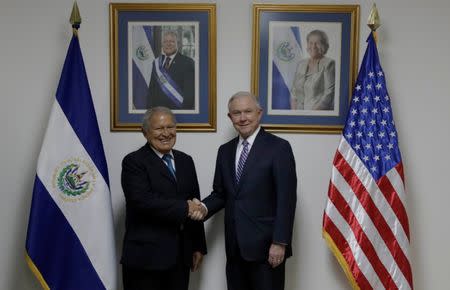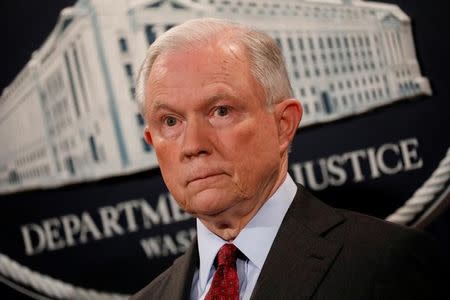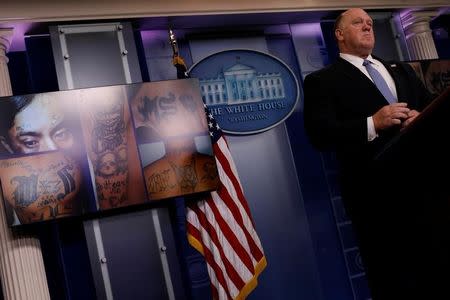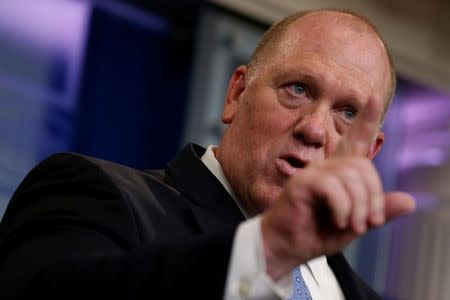Sessions, Central American counterparts eye anti-gang strategies
SAN SALVADOR/WASHINGTON (Reuters) - U.S. Attorney General Jeff Sessions and several of his Central American counterparts will explore strategies to combat criminal gangs during his visit to El Salvador, that country's foreign minister said on Thursday. Violent crime in El Salvador and other countries in the region is one of the main reasons why people seek to emigrate, often moving northward through Mexico to the United States. "We're going to address cooperation in the fight against drug trafficking and against criminal groups ... and particularly the United States' government concern about one of the gangs," El Salvador's foreign minister, Hugo Martinez, told reporters. Sessions will meet with the attorneys general of Honduras, Guatemala and El Salvador on Friday. He earlier welcomed steps by law enforcement officials in El Salvador to charge 113 members of the Mara Salvatrucha gang, known as MS-13, the U.S. Justice Department said, as he visited the Central American country for talks. El Salvador charged 593 gang members ahead of Sessions' visit, including many MS-13 members, the Justice Department said. Sessions congratulated Salvadoran Attorney General Douglas Menendez on the crackdown. "These are very significant blows to MS-13," Robert Hur, principal associate deputy attorney general, told a briefing at the White House. The Mara Salvatrucha was formed in Los Angeles in the 1980s to protect earlier immigrants escaping civil war in El Salvador. The gang, and its rival Barrio 18, have about 60,000 members and are fighting each other for control of extortion, drug trafficking and robbery in El Salvador. Their criminal activities have helped make El Salvador one of the most murderous nations in the world. Sessions' visit to the country comes amid speculation about his future in the job. U.S. President Donald Trump has said he was frustrated Sessions had recused himself from the investigation into possible collusion between Trump's 2016 presidential campaign and Russia and that he would not have appointed him had he known he would do so. (Reporting by Nelson Renteria in San Salvador and David Alexander and Ayesha Rascoe in Washington; Writing by Anthony Esposito; Editing by Cynthia Osterman and Peter Cooney)




